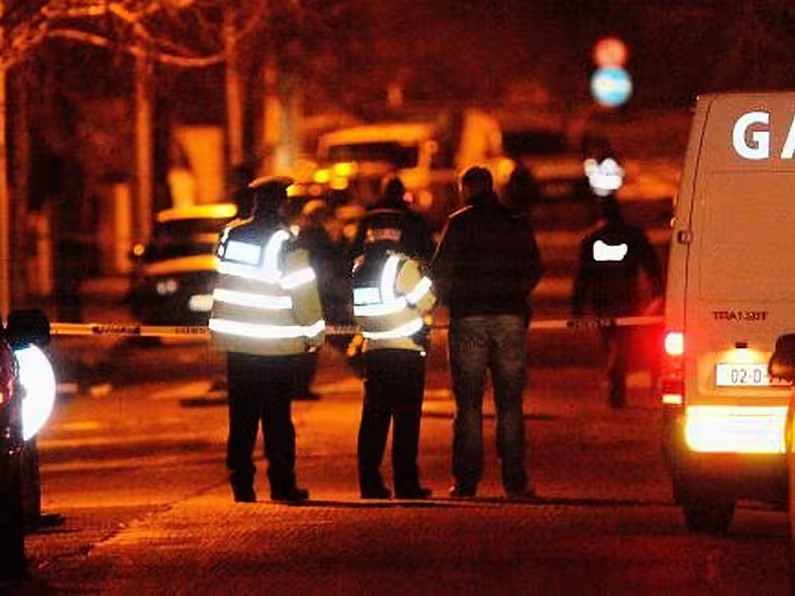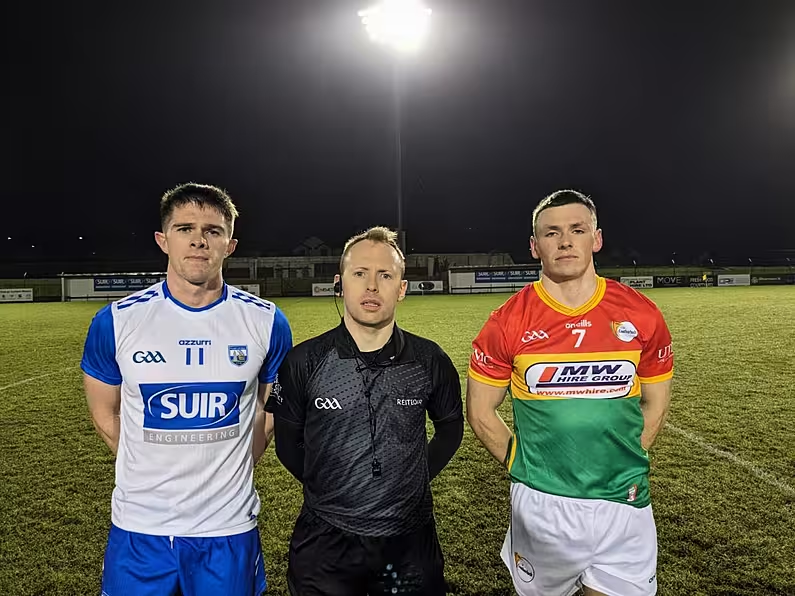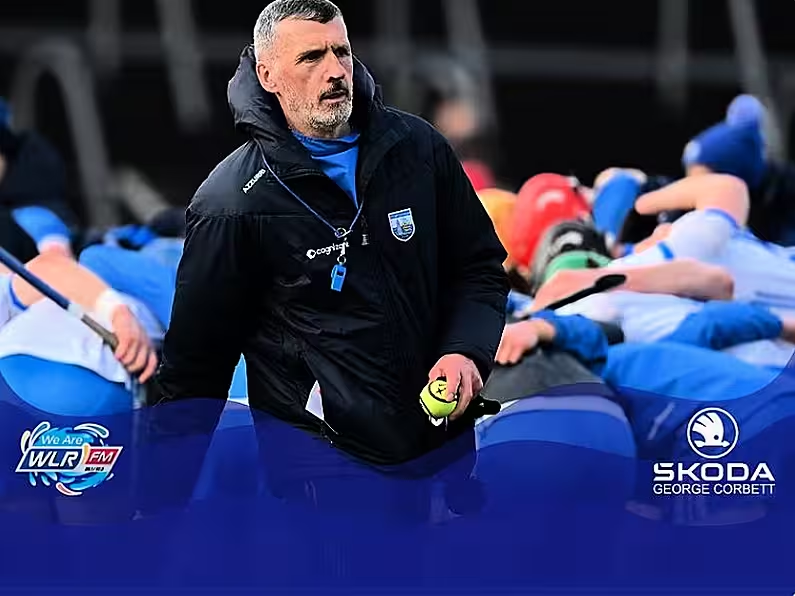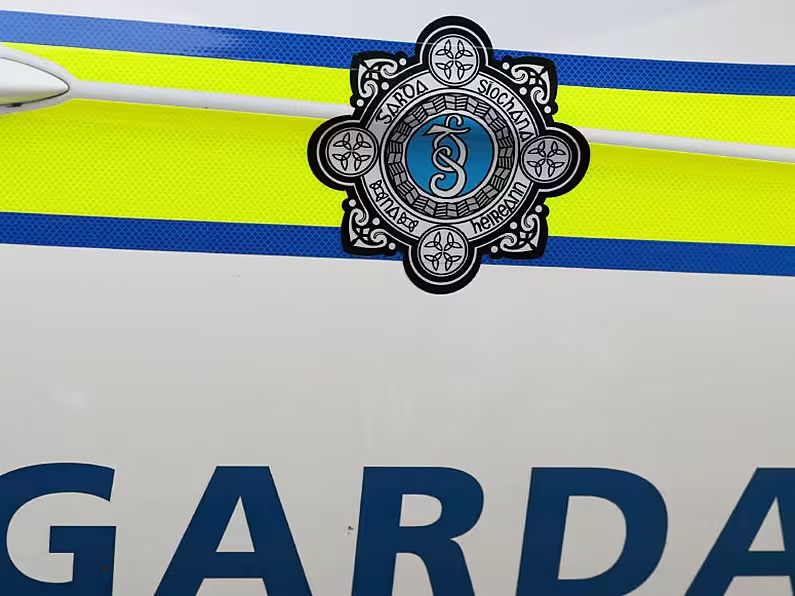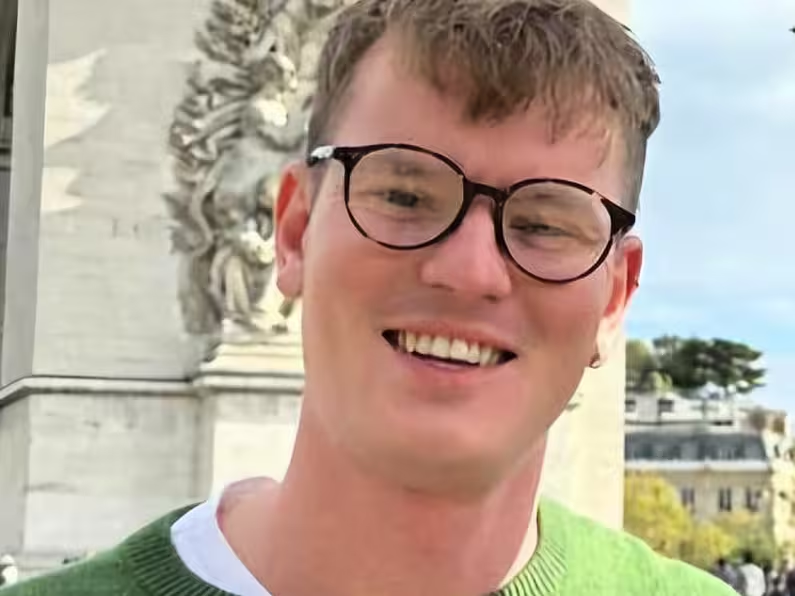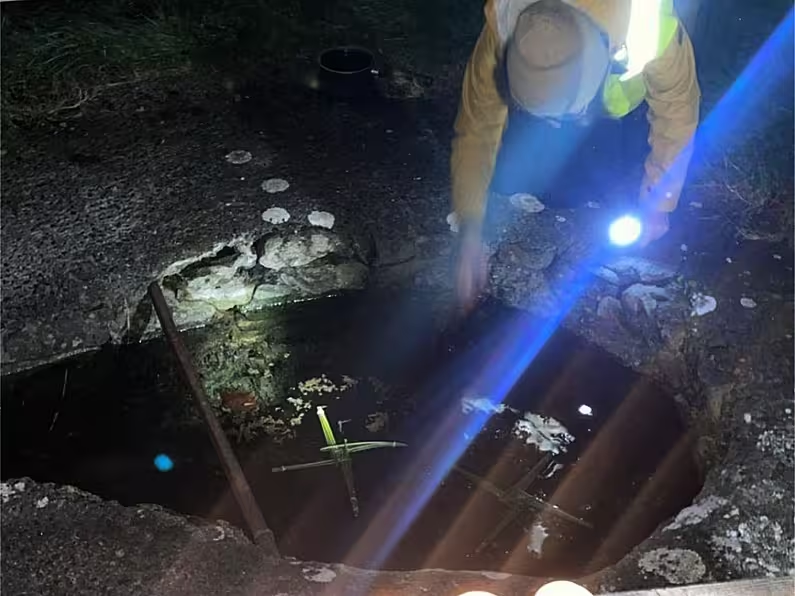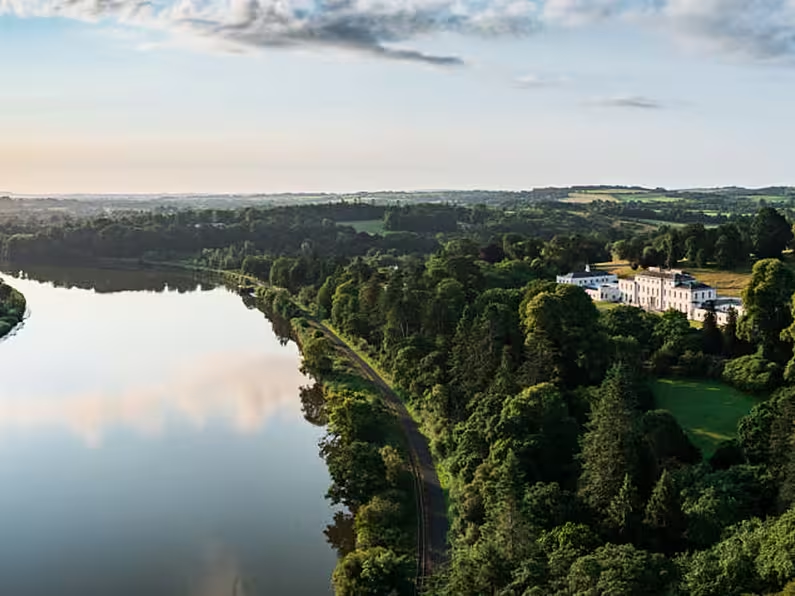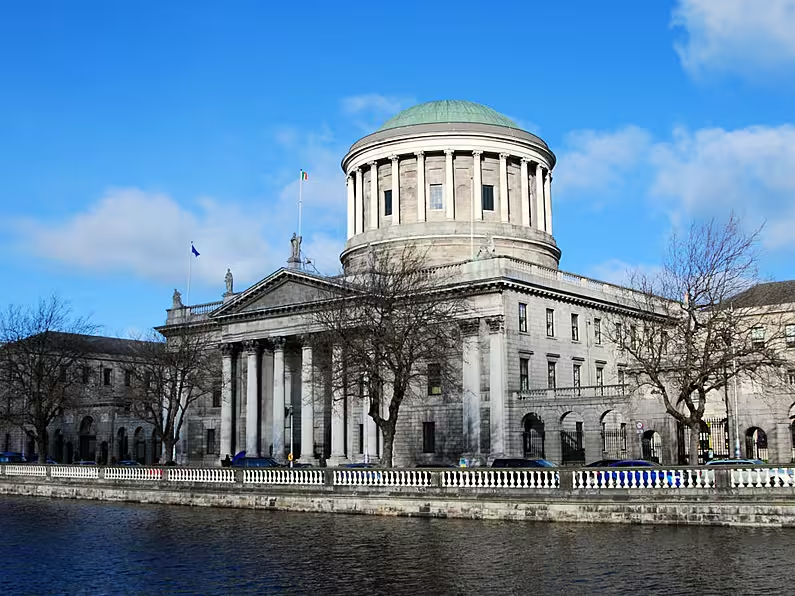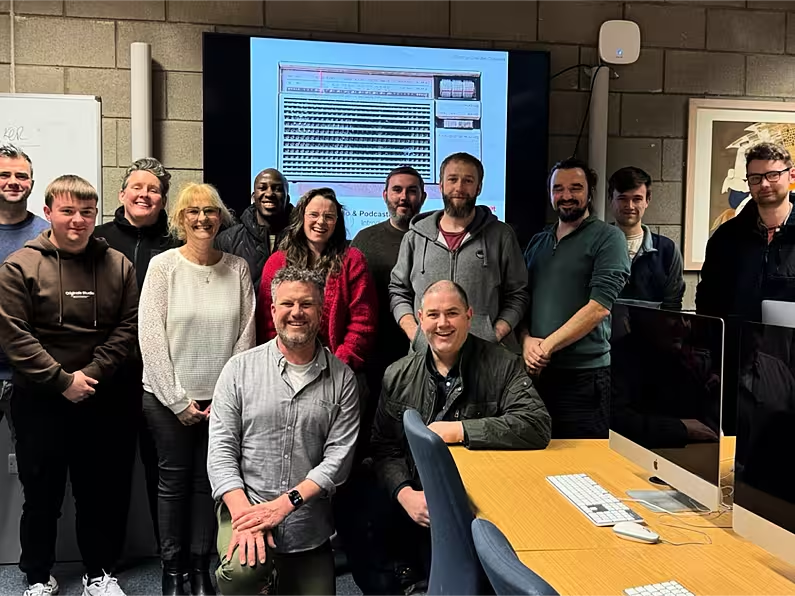Alison O'Riordan
Two Dublin men accused of the murder of gangland figure Eamon Kelly on the north-side of the city in 2012 are connected to the shooting through "nine broad categories of circumstantial evidence" including CCTV footage, fingerprints and firearm residue, the Special Criminal Court heard today.
In his opening speech in the trial of Kenneth Donohoe and Darren Murphy, counsel for the State also told the non-jury court there would be evidence that Mr Donohoe had made "two off the record comments" to gardaí in an informal setting, where he said that "he had not realised that Kelly would be shot but thought it would be a robbery".
Brendan Grehan SC, for Mr Donohoe, said that the "alleged informal comments" were "absolutely denied" by his client and the defence awaited "with anticipation" whether the State would call this evidence "when it comes to it".
Mr Donohoe (42), of Hazelgrove, Tallaght, Dublin 24, and Mr Murphy (50) of George's Place, Dublin 1, are charged with murdering criminal Eamon Kelly at Furry Park Road, Killester, on Dublin’s north-side, on December 4th, 2012.
Both men are also accused of possession of a firearm, a Glock pistol, with intent to endanger life, on the same date and at the same location.
The two accused men pleaded not guilty to the counts, when arraigned before the non-jury court today.
Well-known criminal figure
Father-of-nine Kelly (65) was shot a number of times in the chest as he walked towards his home that day. He was one of the country’s most well-known criminal figures, having been involved in organised crime for more than four decades.
Opening the State's case today, Dominic McGinn SC told the three-judge court that the case revolved around the killing of Eamon Kelly, who was shot dead on Furry Park Road near his home at 4pm on December 4th.
Mr McGinn said the court will hear evidence from several residents who had seen and heard the shooting that afternoon. Emergency services were called and Kelly was found to still be alive but he was struggling for breath, he said. The deceased was taken to Beaumont Hospital, but there was no sign of life and he was formally pronounced dead at 4.40pm that day.
A postmortem was conducted by former State Pathologist Professor Marie Cassidy and she found four gunshot wounds to the back of Kelly's chest. Two of those gunshots were fatal and had pierced the deceased's heart, he said.
Referring to the scene of the shooting, Mr McGinn said the court will hear that residents had described a single gunman firing several shots into Kelly's back. Eight discharged cartridge cases were found at the scene and four of those had hit the deceased, he added.
The barrister further stated that the gunman had been associated with a dark saloon car, which was seen driving in the area. "He [the gunman] got into that for the getaway and some of the witnesses have identified that car," he continued.
Burning car
Shortly after 4pm, emergency services were called to a burning car, which transpired to be a black Lexus, said McGinn. The vehicle had been set on fire at Stiles Court in Clontarf, near the rugby club. "Again there were sightings of suspicious activity immediately before the car was set alight," said the lawyer, adding that the fire was extinguished and then moved to Santry for a technical examination.
Counsel said the court will hear that as gardai were on their way to the burning vehicle in Clontarf, one unit saw a man they recognised as Sean Connolly. "His clothing was similar to that which had been described by residents who had witnessed the shooting," he said.
Mr McGinn said Connolly had been charged with the murder of Kelly and subsequently entered a guilty plea.
In 2015, Sean Connolly, then aged 35, of Bernard Curtis House, Bluebell, Dublin was jailed for life by the Special Criminal Court for the murder of veteran criminal Kelly.
Single gunman
Mr McGinn said the State's case is that Connolly was the single gunman but various aspects of circumstantial evidence connect Mr Donohoe and Mr Murphy to the shooting. There are nine "broad categories" of circumstantial evidence in the case, he said, which are CCTV footage, fingerprints, links to vehicles, DNA, firearms residue, fibres, telephone evidence, alleged informal admissions and inferences that can be drawn from the interview process.
The most important part of the prosecution case, the court heard, is the CCTV footage and gardai had conducted an "extensive trawl" to see if the events before and after the shooting could be attained.
Mr McGinn also indicated that two men appeared to run from the black Lexus when it was set alight and one of these men is associated with another vehicle, a green Opel Meriva. "I won't go into the details of the CCTV as it speaks for itself," he said.
In relation to the evidence against the two accused men, Mr McGinn said there were three "principal participants" at the scene of the shooting, who can be described as male A, male B and male C.
The lawyer said that male B is identified as the gunman Sean Connolly, male A is identified as the driver of the black Lexus who had brought Connolly to the scene and driven the car away afterwards. Male C, he said, is connected to the green Opel car, which was in the vicinity prior to the shooting as a "spotter" car.
CCTV footage
Mr McGinn told the three judges that CCTV footage helped gardaí to track male A, the driver of the black Lexus, had travelled to Arklow on the day in a black Audi A4.
The three-judge court will also be shown CCTV footage of the days prior to the shooting from December 1 to 4, he said. Importantly, Mr McGinn said, gardai were able to compile clips showing a male at various stages of the day on December 4. "Having compiled all the clips, they were shown in a controlled environment to witnesses in a separate process and one of those witnesses recognised the male as Mr Donohoe," he pointed out.
A "similar process" was undertaken for male C, the alleged driver of the green Opel, and seven witnesses had recognised male C as Mr Murphy, said Mr McGinn.
Furthermore, the barrister said that a black Audi A4, which a male had travelled to Arklow in that morning, can be associated with Mr Donohoe and his wife.
There will be evidence, the court heard, that the black Lexus had a "more proximate connection to the shooting" and was sold in October 2012 for €200 to a man who gave his name as 'Paul Farrell'. "However, between then and December 4th there were various sightings of the black Lexus which the prosecution contend is the same vehicle parked in different locations in Tallaght and one of them was near the home of Mr Donohoe," said Mr McGinn.
Referring to the green Opel Meriva, counsel said there was also CCTV footage of this car on December 1 and 4, which showed it driving to the Killester area "in the similar way it did" on December 4th. "It parked in certain locations, returning each time to an apartment complex in Georges Place in Dublin 1," he said.
Mr McGinn said the full registration of the green Opel Meriva is visible on a camera and was registered as being owned by Mr Murphy's partner. "That vehicle was found by a search of Mr Murphy's apartment on December 8th and seized," he added.
Vehicles
A black Toyota Land Cruiser also had "marginal significance", counsel said, and its movements were consistent with it being involved in the incident. Mr McGinn said the driver of that car could not be identified but it appeared that it was made available to pick up Connolly after the shooting. "For some reason that did not happen so that is why Connolly was on foot when he was arrested," he said.
The third category of circumstantial evidence, Mr McGinn said, were fingerprints and several of these were found in the green Opel Meriva, he said. "One is identified as belonging to Mr Donohoe and six a
re belonging to Mr Murphy," he highlighted.
The court heard further evidence will be that a DNA match was established between Mr Donohoe and a latex glove, which was found in the Opel Meriva. There was another DNA match between Mr Murphy and other latex gloves found, he indicated.
Evidence relating to a DNA connection between Mr Donohoe and a black coat will also form part of the prosecution case, he said. Mr Donohoe's home was searched and a coat was seized, which was deemed not to be relevant at the time and was returned to the accused's wife while he was in detention, he said.
DNA evidence
However, Mr McGinn said the significance of the coat became apparent later that day and was seized for a second time. "That was after the CCTV footage was looked at in more detail and a similar coat was being worn by a male. There was a DNA match established between it and Mr Donohoe," he said.
The coat is important not so much for the DNA but for the firearms residue, the lawyer said, and the gunshot residue found on the inside pocket. "It was determined to be similar to the residue recovered from one of the discharged residues found at the shooting," he continued.
There will also be evidence that fibres were taken from the upholstery of the Audi A4, which the prosecution contend that Mr Donohoe and his wife were travelling in, said counsel. "Fibres from that upholstery were matched to Sean Connolly, linking him to the vehicle and suggesting he was in it prior to the shooting," he said.
It is the prosecution case that Mr Donohoe and Connolly travelled in the Audi A4 to the Lexus and then travelled in the Lexus to the scene of the shooting, he explained.
Phone records
Mr Donohoe's wife's phone records also showed her travelling to and returning from Arklow in the Audi A4, he said. However, Mr McGinn said that the two accused's phone numbers suggested that neither of them were using their phones at the time of the shooting.
Referring to Mr Donohoe's alleged admissions, Mr McGinn said he was arrested on December 8th 2012, the same time as his home address was being searched and he had exercised his right to silence. "However, outside the ambit of the recorded interviews he made two off the record comments that he had not realised Kelly would be shot but thought it would be robbery," said the barrister. Counsel said Mr Donohoe had not acknowledged these alleged admissions in a formal setting and therefore he anticipated that there would be legal argument about this issue.
Both accused men were rearrested on February 6th 2014 and the inference provisions were put to them by gardai but they chose to exercise their right to silence, he concluded, adding that they were finally arrested on May 8th of the same year.
Following the opening address, defence counsel Brendan Grehan SC for Mr Donohoe said this was a case of "some antiquity" and there had been no indication as to why there was a delay in "mounting the prosecution". "I want to make clear that the prosecution is on strict proof in relation to the collection of all the evidence and I want to be clear that the alleged informal comments are absolutely denied. I await with anticipation whether the prosecution will call that evidence when it comes to it," he said.
The trial continues in front of Mr Justice Alexander Owens, presiding, sitting with Judge Sinead Ni Chulachain and Judge Dermot Dempsey. It is expected to last six weeks.



